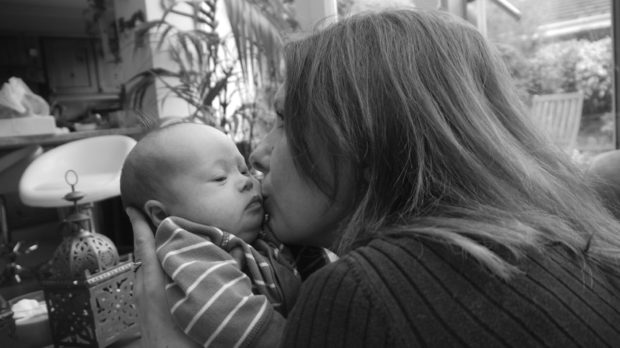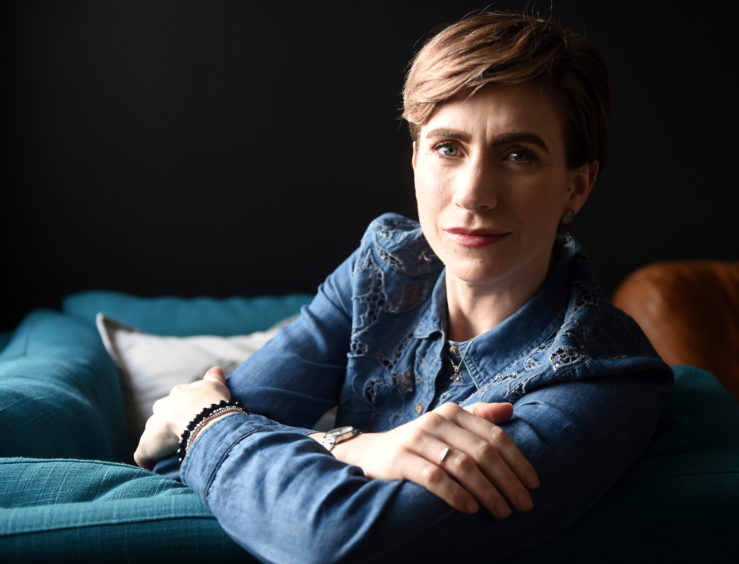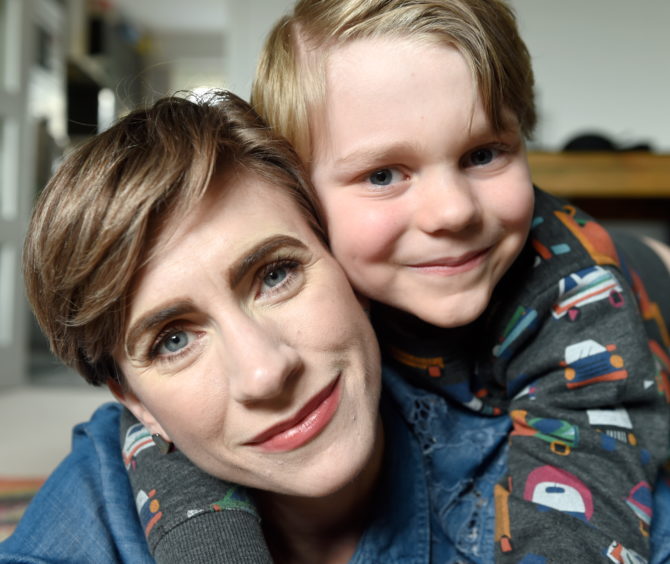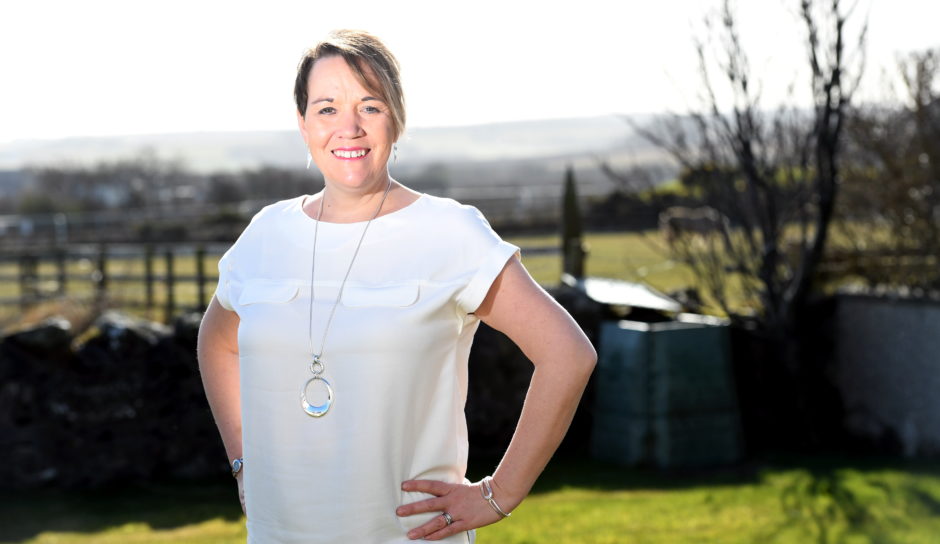Motherhood is often described as both the hardest and most rewarding job of all, from the challenging toddler years to letting teenagers spread their wings.
Thousands of mums will no doubt be looking forward to a well-earned rest tomorrow, greeted by homemade cards and breakfast in bed.
But for some women, Mother’s Day will be bittersweet; a celebration of resilience and a poignant reminder of what could have been.
Here, three remarkable women share their stories of motherhood.
Karla Stewart
Karla Stewart lives in Dores on the outskirts of Inverness with her four children.
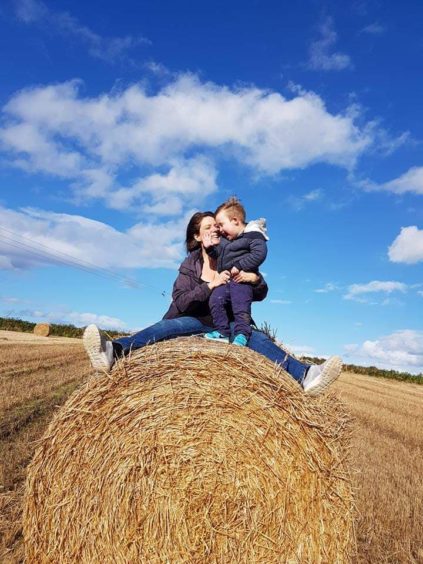 Her youngest son, Joshua, was diagnosed with Down’s Syndrome at birth and went on to battle leukaemia.
Her youngest son, Joshua, was diagnosed with Down’s Syndrome at birth and went on to battle leukaemia.
On May 4 2013, I went into labour with my fourth child.
I was already a single mum to three daughters, we were so excited for the new arrival.
The nurses handed me the little bundle, I felt pure joy when they announced he was a boy.
I took him in my arms and looked down on his wee face, then my heart stopped.
I don’t think I took a breath for what seemed forever, until I became conscious of the two nurses looking at me from the bottom of the bed.
One reached out her arms to take Joshua and as I looked at her, she just gave me a nod of acknowledgment – she knew I knew.
We were put into a private room and there seemed to be a continual flow of doctors and nurses who were asking questions.
I tried to not be angry with them all for offering me commiserations, instead of the usual congratulations a new mother would receive.
The only way I can put into words how I felt, is that I started grieving, not for Joshua, not because he had Down’s Syndrome – but for the child I had conjured up in my mind, the baby that wasn’t here.
I can understand the fear new or expectant parents would have with a diagnosis of Down’s Syndrome, but I wouldn’t change a thing.
Joshua is loving, funny and fiercely independent.
We are blessed to have him.
We celebrated his second birthday and he had mastered the art of unwrapping presents, which was a delight to watch.
The following week, his cold had become chesty and another onset of croup ensued.
We had had frequent night visits to the children’s ward for a dose of steroids and some oxygen.
This time was no different and we stayed a couple of nights in hospital.
Just before we were going to take him home, I asked for a blood test to be taken.
Around 9pm, I was ushered away to a private room.
I was told Joshua had leukaemia.
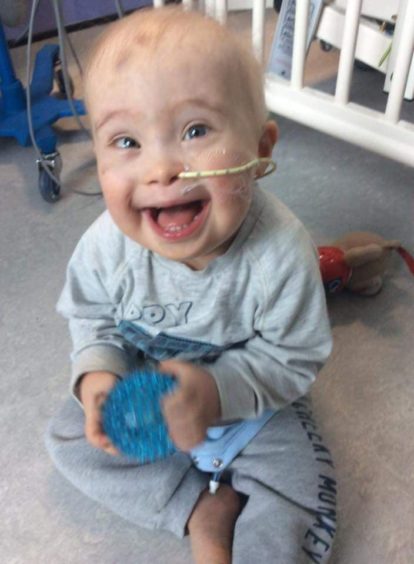
I remember shaking and desperately wanting to be back with Joshua, who was still on the ward next door.
Curtains had been drawn around his bed where he sat with two nurses. Within an hour we were sat holding him while a doctor tried to get a cannula into his chubby wee hand.
Joshua screamed and writhed while looking to me for help and escape, which I couldn’t give. We would have many moments like that.
One thing he taught me was to live in the now, not worrying about what had happened nor about what might.
I felt so torn.
I had to abandon my daughters and be nearly 200 miles away from them, as Joshua was in hospital in Glasgow.
He had four gruelling rounds of chemotherapy, over 20 anaesthetics, and countless blood and platelet transfusions.
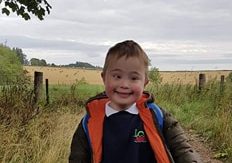
He is five now and in remission, he started school earlier this year.
Every day, 12 children are diagnosed with cancer in the UK alone.
Donate, give blood, raise awareness.
I am forever proud to be his mother.
Lesley Bremner
Lesley Bremner lives in Inverness with her six-year-old son Duncan, and family dog Bertie.
Her youngest son, James, was born sleeping four years ago.
Lesley has gone on to speak about his death to student midwives in the Highlands, as a means of shaping care for bereaved parents.
People often ask: ‘Is it just the one you have?’
I chose my response to this question four years ago, but still fumble over the words.
Not for my sake but for the impact I know they will have: ‘Well I have Duncan who is six and I also had my son James four years ago, but he didn’t survive.’
This is invariably followed by the person apologising for asking and looking deeply uncomfortable. While I always reassure people that it’s okay, they didn’t know, I should remember to add that I’m grateful they asked.
Grateful for the opportunity to say his name and to honour him by affirming his place in our family.
I fell pregnant with James in April 2015.
At our 20-week anomaly scan, James was bouncing about and making me, my husband and the sonographer laugh. After a while though, the room went silent as a potential problem with the baby’s digestive system was spotted.
From that moment to the day James was born, six weeks passed.
Six weeks of torment, hope, horror, life-defining outcomes and life-changing lessons as we waited to discover James’s fate.
Ultimately, James was prenatally diagnosed with an extremely rare genetic condition with a horrendous prognosis incompatible with life.
At 26 weeks pregnant, we had a decision to make.
When you are carrying a baby who is going to die, you have two choices; undergo a procedure where the baby’s heart is stopped and you deliver your baby knowing they’re already dead, or carry on with your pregnancy knowing the baby may be stillborn or die in their infancy.
Weighing up that decision was the most profoundly life-altering experience of my life.
My husband and I decided that the right thing for James, was to let him die in the warmth and safety of my womb having never experienced the pain and suffering his condition would inevitably have caused him on the outside world.
When we met our son, he was wrapped in a shroud I’d made from one of his daddy’s shirts and one of my T-shirts.
We gave him a teddy from us, a car from his big brother, and surrounded him with photographs of his family.
He was quite literally wrapped in us, and surrounded by us.
The support and care we received in hospital and afterwards was incredible; from the midwives, to the chaplain, to the local funeral directors who all take turns in providing funerals for babies free of charge.
Such compassion and respect made an exceptionally cruel time in our lives more bearable.
Four years later, Duncan and I share a remarkable bond; he is my whole world, my best friend and my biggest fan.
He was my reason for being after we lost James, and without him, I’m not sure I would have survived.
Sadly, my marriage didn’t survive, but I have huge respect and affection for my ex-husband as a father and a man.
Last October, exactly four years since we lost James, I was honoured to tell his story to the University of the Highlands and Islands’ first cohort of student midwives. It was a moving and cathartic experience.
To anyone who has experienced the loss of their baby, or is going through it right now, I would encourage you to look for the gift in this experience.
I realise that may sound strange, but I have always said that James gave me more than his death took away; he showed me who I am.
Suzanne Davies
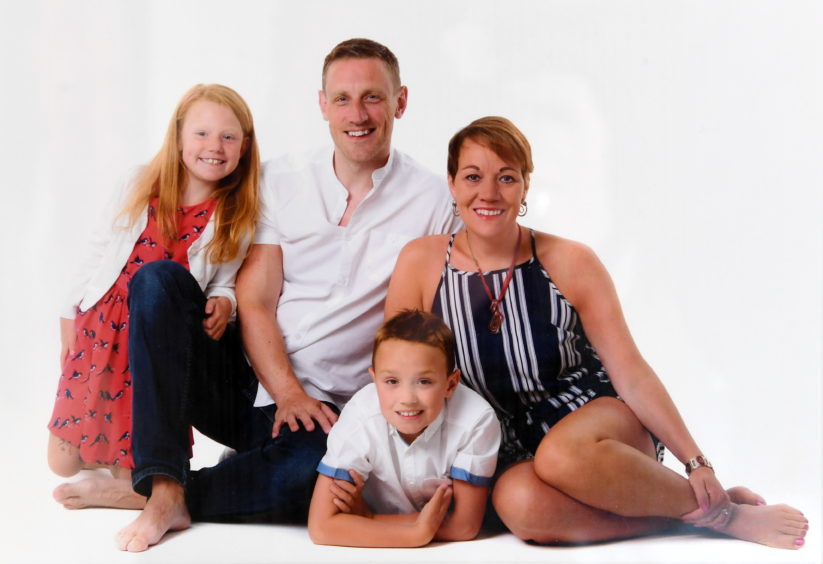 Suzanne Davies lives in Newtonhill on the outskirts of Aberdeen, with husband Owen and the couple’s two children, Max and Lauren.
Suzanne Davies lives in Newtonhill on the outskirts of Aberdeen, with husband Owen and the couple’s two children, Max and Lauren.
She was given one year to live in 2014, after she was diagnosed with a brain tumour at 35 years old.
Alongside family and friends, Suzanne has gone on to raise thousands of pounds for CLAN, The Brain Tumour Charity and most recently, Worldwide Cancer Research.
The diagnosis came out of the blue. I remember my speech going really bad. I forgot words.
I worked in oil and gas at the time.
Then I had this pain on the left side of my head, so I went to the doctor.
She sent me straight to A&E where I had a CT scan, and they discovered a mass the size of a golf ball.
I was sent to the neuro ward and went on to have surgery.
I was asked if I wanted to be awake for the surgery; they told me to think about it.
I didn’t need to think about it.
I had two young kids; Max was seven and Lauren was four.
I opted to be awake as they attempted to remove the tumour.
Me and Owen decided that night we were going to go and have the best life, to make the most of every day.
I was diagnosed with grade four glioblastoma, an aggressive form of brain cancer.
They couldn’t remove all of it, and I was given one year to live, with chemo giving me a further eight weeks.
I never took that prediction into consideration, and went on to have chemo and radiotherapy.
I choose to be positive, I am not going anywhere.
My kids are obviously a huge part of that, and Owen has been my rock. I remember thinking I’d never shout at my kids again. I’m not sure I’ve stuck to that.
It’s hard, trying to strike that balance between what they need to know, and what can obviously be very upsetting.
Of course I have moments when I think, what if I’m not around?
I try not to dwell on that, although we’ve had lots of pictures taken, partly so that the kids can look back on them.
But also because I’m so proud of our family.
I’ve retrained in reflexology and Indian head massage, after I received complementary therapies through CLAN.
We take it one day at a time; my relationship with my children is incredibly special.
I’m not leaving them.
